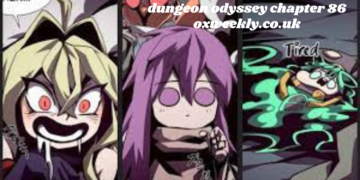Sankkucomplex is a term that has been gaining attention in certain circles, particularly on social media platforms and online forums. It is a term that appears to be rooted in Japanese pop culture but has evolved in its meaning and usage. In this article, we will delve into the nuances of the term “Sankkucomplex,” its origins, and its broader cultural significance. If you’ve stumbled upon this term and wondered what it means or how it has come to be so popular, this comprehensive guide will help you understand its layers.
What Is Sankkucomplex?
At its core, Sankkucomplex refers to a specific aesthetic or cultural phenomenon that is linked to a growing fascination with certain aspects of anime, manga, and Japanese gaming culture. The term is a blend of “Sankku,” which is a slang term in Japanese, and “complex,” meaning an intricate or multifaceted condition.
Sankku – The Slang Word
The word “Sankku” is often associated with the Japanese pronunciation of the word “thank you.” It’s part of the way some anime characters express gratitude, and it quickly became a popular phrase among fans of Japanese culture. The playful use of “Sankku” has expanded beyond its typical usage, evolving into an emblem of the emotional and whimsical connections that anime fans have with their favorite characters.
Complex – The Psychological Element
The second part of the word, “complex,” refers to an emotional or psychological state of being. When paired with Sankku, it gives the term an underlying sense of obsession or fascination with particular characters or cultural symbols. This connection could be related to an individual’s emotional attachment to fictional characters or certain thematic elements found in anime and manga.
The Rise of Sankkucomplex in Online Culture
The rise of Sankkucomplex can largely be attributed to the popularity of anime and manga, which have experienced a global surge in interest in recent years. Anime fandoms, particularly those on platforms like Reddit, Twitter, and Tumblr, often discuss and share content related to their favorite characters, including moments that evoke deep emotional responses.
The Influence of Anime on Sankkucomplex
One of the driving forces behind the emergence of Sankkucomplex is anime’s deep exploration of characters’ emotions and development. In many anime shows, characters undergo personal growth, face conflicts, and form close relationships, which evoke strong emotional reactions from the audience. Fans often form connections with these characters, leading to a kind of affection or “complex” that is tied to a specific show, character, or even a genre. This emotional investment is not limited to just watching the shows but extends to fan art, fan fiction, cosplay, and other forms of fan engagement.
The Role of Cosplay and Fan Communities
Cosplay, or dressing up as a character from anime or manga, also plays a large part in the development of Sankkucomplex. Cosplayers often feel a deep connection to the characters they portray, further fueling the attachment that forms the foundation of Sankkucomplex. The fan communities, too, are vibrant spaces where shared experiences and discussions only amplify the emotional bonds to these fictional worlds.
Understanding the Psychology Behind Sankkucomplex
The term Sankkucomplex can also be viewed through the lens of psychology. It explores the idea of parasocial relationships, which are one-sided attachments that individuals form with media personalities, celebrities, or, in this case, fictional characters. This phenomenon can be incredibly powerful, as people feel a sense of emotional fulfillment, even if their relationship with the character is entirely fictional.
Emotional Attachment to Fictional Characters
Many fans who are drawn into Sankkucomplex experience a deep emotional attachment to characters that is comparable to the attachment someone might feel toward real-life people. This can be seen in how fans defend their favorite characters, engage with them on social media platforms, or celebrate their favorite moments from the shows. For some, this attachment provides a sense of comfort or escapism from the pressures of their everyday lives.
Escapism and Fulfilling Emotional Needs
Escapism is another psychological factor that contributes to Sankkucomplex. Anime, manga, and video games offer alternate realities where viewers can escape to worlds filled with exciting adventures, idealized characters, and often exaggerated emotions. In these spaces, fans can temporarily disconnect from the challenges of their real lives and indulge in experiences that are emotionally fulfilling.
Sankkucomplex and Its Relation to Waifu Culture
In many ways, Sankkucomplex is deeply tied to the concept of “waifu culture.” A waifu refers to a fictional character, typically from anime or manga, whom someone has formed a romantic or deep emotional attachment to. The term waifu is derived from the English word “wife,” and it symbolizes the idea of a fan “marrying” or forming a romantic attachment to a character.
Waifuism and Emotional Investment
For fans who engage in waifuism, the attachment to a particular character can be extremely intense, to the point where it mirrors a romantic relationship. This is where the “complex” part of Sankkucomplex becomes apparent. The psychological and emotional attachment to a waifu can be very strong, and it can become a significant part of a person’s emotional landscape.
The Social Stigma Around Waifuism
While waifuism and, by extension, Sankkucomplex, are a legitimate form of fandom for many people, there is a degree of social stigma associated with it. Critics often view these attachments as unhealthy or indicative of social isolation. However, for those who embrace these connections, they are an important part of their lives. Just as some people form attachments to real-life celebrities or fictional characters in books or films, Sankkucomplex represents a similar phenomenon in the world of anime and manga fandoms.
How Sankkucomplex Influences the Broader Cultural Landscape
Sankkucomplex and the related fandoms have started influencing various aspects of popular culture beyond just the anime community. The increase in anime’s global popularity has also brought attention to the emotional investment that fans place in their favorite fictional worlds. This influence is seen in the growing acceptance and understanding of fan-created content, from art to literature, all of which continue to explore and celebrate the emotional complexity of fictional characters.
The Commercialization of Sankkucomplex
One of the results of the growing popularity of Sankkucomplex is the commercialization of this fandom. Products like figurines, posters, and even virtual characters (in the form of digital avatars) are designed to cater to the needs of fans who are deeply connected to particular anime characters. Many companies, recognizing the emotional investment of fans, have capitalized on these connections to create merchandise that allows fans to further express their affection for their favorite characters.
The Intersection of Virtual Worlds and Reality
Moreover, the rise of virtual worlds, such as in video games and digital media, has created new spaces for fans to interact with their favorite characters. These virtual spaces have allowed people to form relationships with digital avatars, which further blurs the lines between reality and fiction. In many ways, this evolution speaks to the growing influence of Sankkucomplex on global pop culture.
Conclusion: Sankkucomplex as a Cultural Phenomenon
Sankkucomplex is much more than just a passing trend in online culture; it is a reflection of the deep emotional bonds people form with fictional characters and worlds. Rooted in anime and manga fandoms, it has grown to encompass various elements of social interaction, psychological attachment, and emotional investment.
Whether it is through cosplay, fan fiction, or virtual worlds, Sankkucomplex continues to thrive as a key aspect of the anime and broader pop culture landscape. While it may be misunderstood by some, it remains an important part of the identity for many fans who find meaning, comfort, and emotional fulfillment through their engagement with anime and its characters.
As we continue to navigate an increasingly digital and virtual world, the emotional connections people form with fictional characters will likely only become stronger, giving rise to new expressions of Sankkucomplex and the fandoms it supports
































